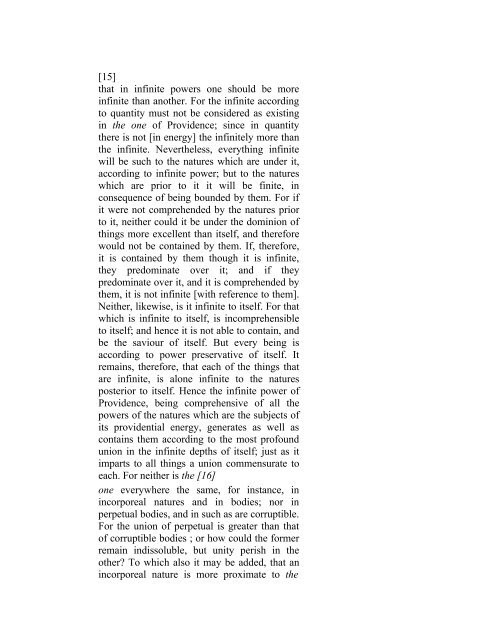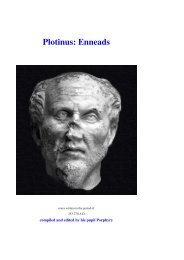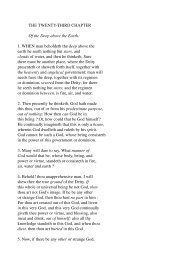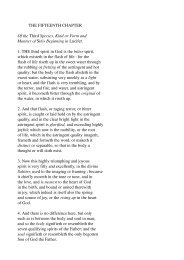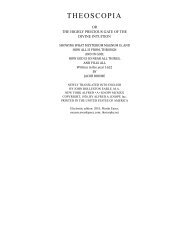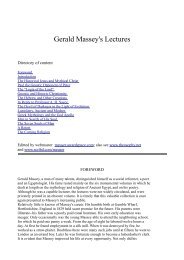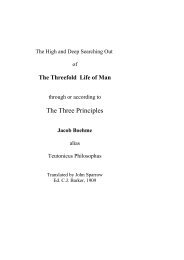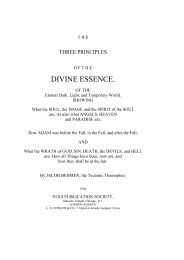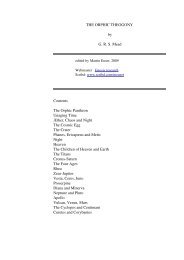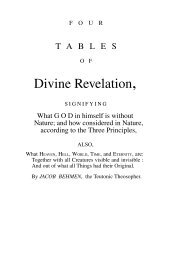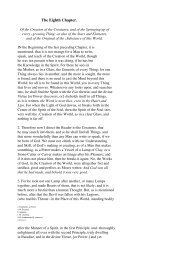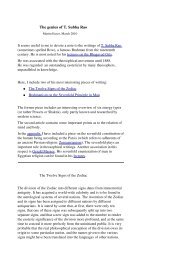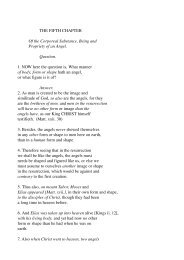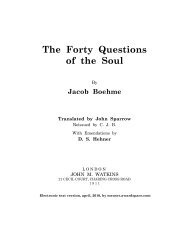PROCLUS, THE PLATONIC SUCCESSOR
PROCLUS, THE PLATONIC SUCCESSOR
PROCLUS, THE PLATONIC SUCCESSOR
You also want an ePaper? Increase the reach of your titles
YUMPU automatically turns print PDFs into web optimized ePapers that Google loves.
[15]<br />
that in infinite powers one should be more<br />
infinite than another. For the infinite according<br />
to quantity must not be considered as existing<br />
in the one of Providence; since in quantity<br />
there is not [in energy] the infinitely more than<br />
the infinite. Nevertheless, everything infinite<br />
will be such to the natures which are under it,<br />
according to infinite power; but to the natures<br />
which are prior to it it will be finite, in<br />
consequence of being bounded by them. For if<br />
it were not comprehended by the natures prior<br />
to it, neither could it be under the dominion of<br />
things more excellent than itself, and therefore<br />
would not be contained by them. If, therefore,<br />
it is contained by them though it is infinite,<br />
they predominate over it; and if they<br />
predominate over it, and it is comprehended by<br />
them, it is not infinite [with reference to them].<br />
Neither, likewise, is it infinite to itself. For that<br />
which is infinite to itself, is incomprehensible<br />
to itself; and hence it is not able to contain, and<br />
be the saviour of itself. But every being is<br />
according to power preservative of itself. It<br />
remains, therefore, that each of the things that<br />
are infinite, is alone infinite to the natures<br />
posterior to itself. Hence the infinite power of<br />
Providence, being comprehensive of all the<br />
powers of the natures which are the subjects of<br />
its providential energy, generates as well as<br />
contains them according to the most profound<br />
union in the infinite depths of itself; just as it<br />
imparts to all things a union commensurate to<br />
each. For neither is the [16]<br />
one everywhere the same, for instance, in<br />
incorporeal natures and in bodies; nor in<br />
perpetual bodies, and in such as are corruptible.<br />
For the union of perpetual is greater than that<br />
of corruptible bodies ; or how could the former<br />
remain indissoluble, but unity perish in the<br />
other? To which also it may be added, that an<br />
incorporeal nature is more proximate to the


